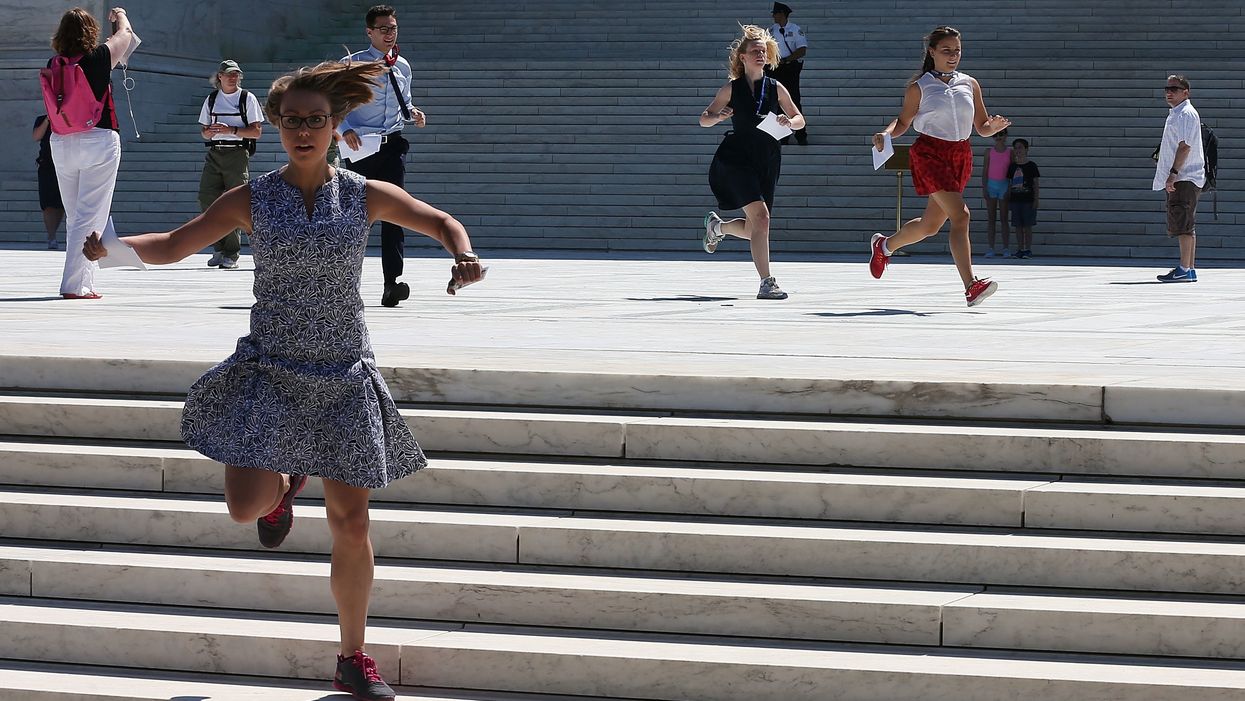Liska was most recently the senior coordinator for university and alumni relations at the Washington Center for Internships and Academic Seminars.
As we continue down this swirling whirlpool of virus-induced uncertainty, a great deal of discussion has occurred in the D.C. government affairs space about how trade associations and lobbying firms will operate in our new normal.
With Capitol Hill offices physically closed, normal legislative business disrupted and access to members and staff restricted more than ever, new methods of advocacy must be created. But there's been little talk about how citizen advocacy can adapt — especially on the part of young Americans.
With Congress passing unthinkably-large spending packages in record time, it's crucial all Americans be given the tools, perspective and encouragement to stay active in the public policy process despite our new reality.
Much of my professional career has been spent teaching civics to college students, and I've learned that to truly make a difference, a war in two theaters must be won: first, to reteach civics and "unlearn" misinformation; and second, to pull back the veil and show students how to apply directly the methods of advocacy.
For several years, I managed an academic public policy program at a nonprofit in Washington. It attracted thousands of college students to the capital each year. We wanted undergraduates to understand Congress and the public policy process, but with a twist:
After they were taught techniques of effective advocacy, they got a shot at trying them out on one of their own members of Congress. I helped facilitate almost 900 such face-to-face sessions for my students over five years.
Long before they set foot in a House or Senate office building, though, it was clear many weren't prepared. Most arrived for the semester with little civic understanding.
Some barely knew the three branches of government. Others had no concept of how laws were made. And, with the oversaturation of opinion masquerading as news, many couldn't tell fact from fiction. Some pointed to "House of Cards," one of the worst depictions of modern Washington there is, as an illustration of truth. And sadly, some thought that simply having an opinion was all they needed to debate policy.
So how do we fix this?
Foremost, young Americans must be taught civics more properly. The approach at my high school in Connecticut relied on memorization of the congressional districts and a spirited viewing of "Schoolhouse Rock!" ("I'm just a bill, sitting here on Capitol Hill.") This simply is not enough.
Comprehensive instruction must include how, and why, young people should visit Congress or a state legislature, with insight into the legislative dynamics and political realities. Students should be taught to spot misinformation, reject it entirely. And they need to learn how to articulate their wants and needs to those in power.
Which leads to the experiential piece. Many of the Founders felt it critical to incorporate civic learning into all levels of education, suggesting citizens actively attend official functions to understand personally how governments work.
The Philadelphia physician Benjamin Rush, a signer of the Declaration of Independence and delegate to the Continental Congress (and also founder of Dickinson College, my alma mater) envisioned an education rooted in republican principles. In a 1786 treatise, he was so supportive of in-person encounters with the government that he suggested colleges be located only in county seats, so students would be easily able to witness local legislating and court proceedings.
Such access is just the first step. Students should take field trips and participate in lobby days, where they can hear directly from legislative staff and legislators about effective advocacy. They can see what works and what doesn't, and gain valuable insight into the kind of information lawmakers need when considering legislation.
Most of all, though, these young citizens would be more emboldened with the courage they need to continue a lifetime of advocacy.
To assure such repeated exposure to the halls of government, part of the responsibility lies with members of Congress and their staff. Thankfully, in all my hundreds of meetings on the Hill, only a handful of offices were unresponsive and fewer still were hostile to the idea of meeting with students.
But to help young citizens learn more about civics, legislators must make time for these constituents, explain their bills in plain English — and actually have a conversation. Politically-charged form letters do not make for good constituent correspondence. And with video conferencing now so commonplace, the opportunity for someone from a Senate or House office to appear in a virtual classroom to discuss lawmaking has never been easier.
Today's students are tomorrow's leaders, so institutions of learning must not cut back or eliminate civics. While all 50 states require some element of civic learning, many have shrunk or modified the curriculum — and, wrongly, some study-in-D.C. programs have eliminated any instruction related to advocacy.
Decisions about our future are made in Washington and in state capitols every day, with or without our input, so now is the time to double-down on what we can teach students about advocacy by involving all stakeholders: Legislators, lobbyists, educators and community groups.
By strengthening civic engagement, especially with young people, we might be able to equip a critical mass of Americans with the tools they need to inject a renewed sense of life in our democracy.



















Trump & Hegseth gave Mark Kelly a huge 2028 gift